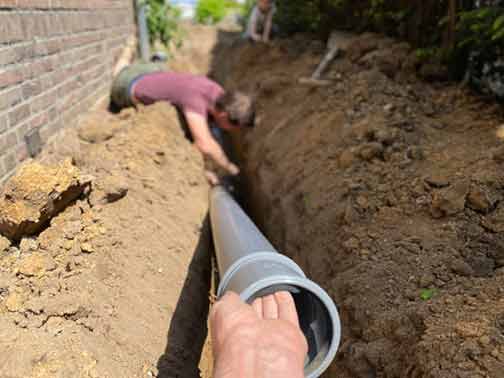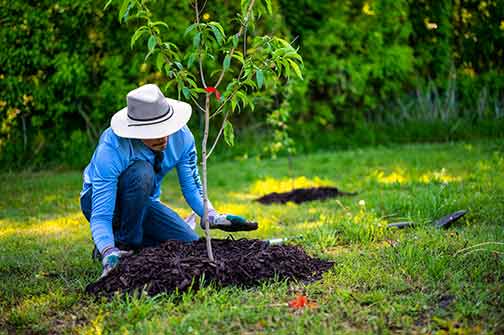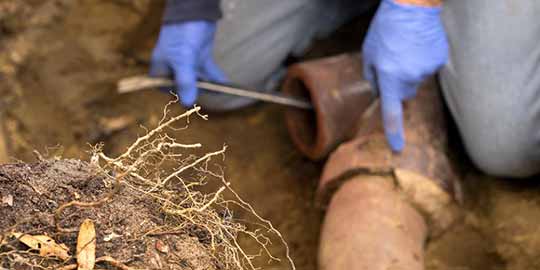
The sewer line is an essential component of any plumbing system that connects your house’s drains to the municipal sewer system. It is often overlooked until it starts to malfunction, causing massive inconvenience, costly repairs, and health hazards. Sewer line maintenance is vital to ensure your plumbing system functions efficiently, minimizing the possibility of nasty and costly sewer backups. In this article, we will outline the do’s and don’ts of tending to your sewer line and how to prevent potential damage.
The Do’s of Tending to Your Sewer Line
1. Schedule Regular Inspection and Maintenance
Regular inspection and maintenance of your sewer line are crucial for identifying potential problems before they escalate. A licensed plumber should camera inspect your main sewer line annually or bi-annually. During the inspection, they can identify blockages, cracks, corrosion, and tree root intrusion that could potentially damage your sewer line.
The plumber can also conduct a hydro jetting service, which involves the use of high-pressure water and special equipment to clear any debris or tree roots that may have infiltrated your sewer line, causing clogs or slow drainage.
2. Use Sewer-Friendly Products
The products you use in your home can affect your sewer line’s health. Using toilet paper that dissolves quickly, for example, can prevent clogging of the sewer line. Also, avoid throwing non-biodegradable items like sanitary pads, tampons, and baby wipes down the toilet as they can cause blockages and damage your sewer line.
When it comes to drain-cleaning products, avoid harsh chemicals that can damage your pipes. Instead, use natural agents like vinegar and baking soda to clean your drains and prevent clogs.
3. Locate and Mark Your Sewer Line
Knowing where your sewer line is buried can help prevent damage during landscaping and other outdoor activities. It would be best to locate and mark your sewer line to avoid accidental damage from digging, planting trees or shrubs, or installing new structures in your yard.
4. Dispose of Fats, Oils, and Grease (FOG) Properly
When it comes to FOG, it is essential to dispose of them properly. FOG can solidify in your pipes, causing clogs and eventually damaging your sewer line. Instead, allow grease to solidify in a container and dispose of it in the trash.
5. Consider Hiring a Professional Plumber
While there are DIY methods for unclogging your sewer line, it is more advisable to hire a professional plumber. An experienced plumber has specialized tools, training, and expertise to identify problems and fix them correctly. DIY methods can cause further damage and expensive repairs down the line.

Tree roots are drawn to the moisture and nutrients found in sewer lines, causing cracks and blockages that lead to sewer backups.
The Don’ts of Tending to Your Sewer Line
1. Do Not Plant Trees or Shrubs Near Your Sewer Line
Tree roots are one of the most common causes of sewer backups and line damage. Tree roots are drawn to the moisture and nutrients found in sewer lines, causing cracks and blockages that lead to sewer backups. When planting trees or shrubs, ensure that they are at least ten feet away from the sewer line.
2. Do Not Use Chemical Drain Cleaners
Chemical drain cleaners can cause more harm than good to your sewer line. The harsh chemicals can corrode the pipes over time, causing leaks and cracks. Additionally, these chemicals do not always remove the entire clog, resulting in stubborn blockages that require professional attention.
3. Do Not Use Your Toilet as a Garbage Disposal
As mentioned earlier, avoid throwing non-biodegradable items down the toilet. Your toilet is designed to handle human waste and toilet paper, nothing else. Other items like feminine hygiene products, baby wipes, dental floss, and even cotton swabs can cause blockages, leading to sewer backups and costly repairs.
4. Do Not Pour FOG Down the Drain
FOG should not be poured down the drain as it can cause clogs and damage your sewer line. Instead, allow grease to solidify and dispose of it in the trash.
5. Do Not Ignore the Signs of Sewer Line Damage
Ignoring the signs of sewer line damage can lead to significant and expensive repairs. Signs of a damaged sewer line include slow drainage, gurgling noises, sewage odors, and sewer backups. If you notice any of these signs, call a licensed plumber immediately to assess the damage and prevent further complications.
In conclusion, tending to your sewer line is vital to ensure your plumbing system functions efficiently and lasts longer. The do’s and don’ts of sewer line maintenance can prevent blockages, leaks, clogs, and other potential damages that could lead to costly and messy repairs. By adhering to these guidelines, you can keep your sewer line healthy and free-flowing for many years.
